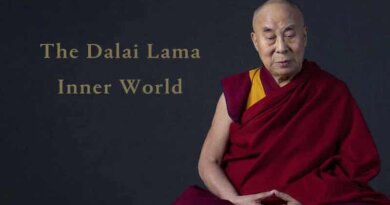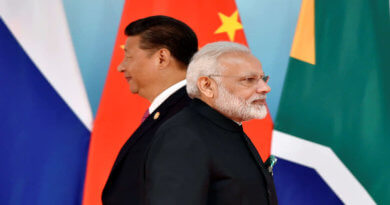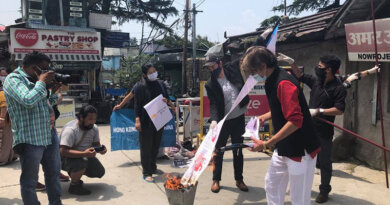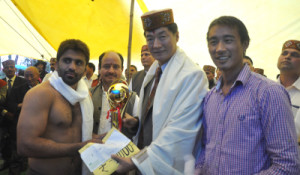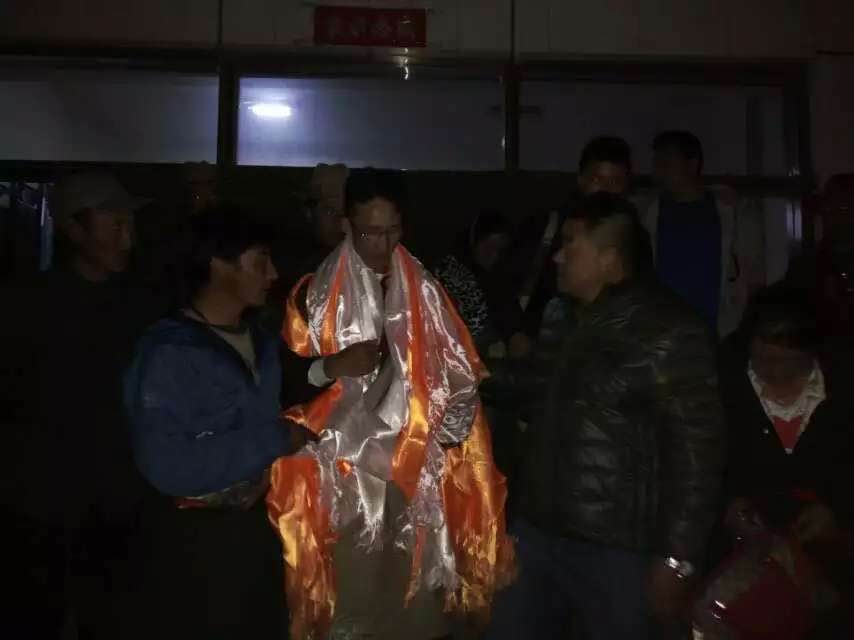Monk from Tsang Monastery Arrested as China Intensifies Tibet Crackdown
By Tenzin Chokyi

DHARAMsALA 27 Aug: A monk from the Tsang Monastery in Amdo region of occupied Tibet has been arbitrarily arrested by Chinese authorities for allegedly “sending money abroad” during the period surrounding the 90th birthday of the 14th Dalai Lama of Tibet.
According to Tibet Times, Geshe Zega Gyatso, who returned to occupied Tibet in 2002 after studying Buddhism for a year at a Tibetan monastery in India, was taken into Chinese custody around 2 July in Xining city, where he had gone for a medical consultation.
Chinese authorities have accused Geshe Zega of sending money to India and have not provided further details since the arrest. His family and relatives have been denied all contact and visitation rights.
His exiled relatives in India, according to the report, have rejected the Chinese authorities’ claims and instead they suspect that the arrest may be due to another matter.
Geshe Zega’s younger brother, Khedrub Gyatso, was arrested in 2008 in the aftermath of the Tibetan uprising during the Beijing Olympics. Since then, sources from occupied Tibet report that the entire family has been under constant surveillance and suspicion by the Chinese authorities.
The family has repeatedly faced harassment, including warnings, interrogations, and sudden police summons, with authorities frequently accusing them of maintaining contact with people outside occupied Tibet.
While the world listened to the Dalai Lama speak about his reincarnation on his 90th birthday, reports soon began to emerge from occupied Tibet of preemptive actions by China aimed at suppressing any potential Tibetan dissent.
According to Tibet.net, the official website of the Tibetan government in exile, credible sources inside occupied Tibet have reported intensified surveillance and monitoring of Tibetans, particularly their communication with those in exile and across different parts of the region.
Several Tibetan monastries continue to face a crackdown, with political meetings now held before daily religious ceremonies and monastic activities. This move is widely seen as a deliberate effort to undermine the spiritual devotion of Tibetans to their exiled leader, especially during his birthday month.
Tsang Monastery has reportedly been placed under lockdown with daily searches of monastic quarters and seizure of forbidden photographs of the Dalai Lama.
More recently, on 18 August, the managing director of the monastery, Geshe Shersang Gyatso, tragically ended his own life in what sources say was a final act of resistance, following increased pressure and restrictions imposed by the Chinese authorities.
The tragic death of Geshe Shersang stands as testament to the unbearable pressure Tibetan monastics continue to face under Chinese rule. His suicide is seen by many as a desperate act of resistance in an environment where religious expression is increasingly criminalised.
In such a climate, once taken into Chinese custody, Tibetans in detention have virtually no legal recourse to prove their innocence. Over the years, numerous reports from occupied Tibet have documented arbitrary arrests without any semblance of justice being delivered.
One such case is that of Dorje Tashi, whose sister Gopo Kyi and their family have been fighting against his unjust imprisonment for the past 17 years. Despite pursuing legal and public avenues, the Tibetan business family has not been granted even a single visitation since 2019.

